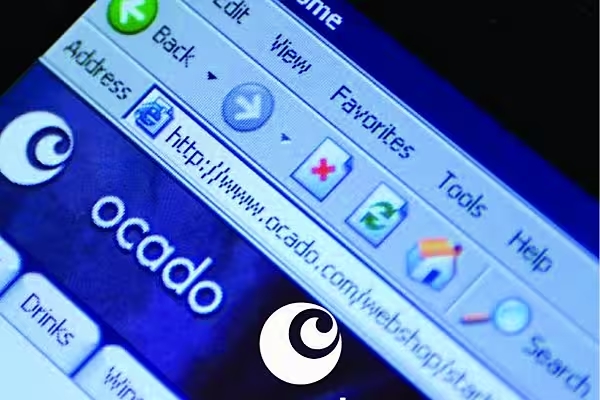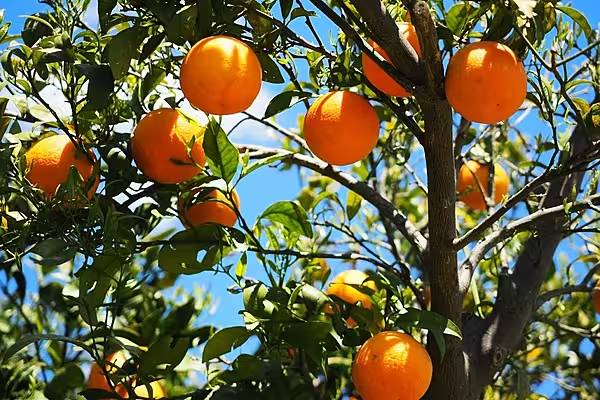Ocado hasn't been able to get over its strategy obstacles. So it's going under.
The internet-only grocer has been trying in vain to clinch a distribution agreement with a big overseas retailer for more than two years. It seems it's looking closer to home -- Marks & Spencer Group Plc is exploring selling its upmarket food online, and Ocado Group Plc could provide the service, The Daily Telegraph reported.
The idea of a tie-up between the two has been around for a while. Former M&S Chief Executive Officer Stuart Rose looked at it before Ocado floated in 2010. Then, it would have been a supermarket match made in heaven. Today, it's more like a marriage of convenience, with neither group in a strong enough position to go it alone.
A deal is possible now only because Wm Morrison Supermarkets Plc's contract renegotiation with Ocado last year left it free to pursue a partnership with M&S (though it's still barred from working with another one of the so-called big four supermarkets, or discounters Aldi and Lidl).
Ocado also sources products from Waitrose, but that shouldn't be a hurdle. In fact, M&S would be a useful substitute if Waitrose ever called time on their cooperation. The current contract runs to 2020.
Looking Internationally
The drawback is that with Ocado having been thwarted in its efforts to find an international partner for so long, a tie-up with M&S is badly needed. That's not a great negotiating position to start with.
But the advantage isn't entirely with M&S.
The economics of online grocery retail are tricky. Just look at Ocado itself.
It is the leader in selling food online in Britain, with state-of-the-art distribution centers and robotic technology. But its profits are so thin it needs third-party service contracts to boost its earnings.
Home Delivery Challenges
M&S home delivery would be even more challenging. It costs grocers between 10 pounds ($12.92) and 15 pounds to deliver an order, and it is difficult enough to absorb these costs if you assume a shopping basket of 100 pounds or so. But M&S, with its focus on prepared meals, food on-the-go and indulgent treats, has a much smaller basket, typically less than 15 pounds. While its well-heeled customers might be prepared to pay for delivery, it'll still be a stretch for the company to get the high cost of this service to work.
And if relatively new CEO Steve Rowe does go ahead with an arrangement with Ocado, he'll want to make sure he avoids a customer-service disaster, which is what M&S experienced with the relaunch of its non-food website three years ago. He has enough on his plate already with turning around M&S's clothing business, and the economics of this grocery deal looks like a losing proposition. This is a move he should skip.
Were he to proceed, he would need all of Ocado's expertise and economics of scale to overcome the unfavorable dynamics. That might strengthen Ocado's hand a little in negotiations.
Ocado Shares
Ocado shares, which rose as much as 9.5 percent on Tuesday, are well short of the peak of 600 pence three years ago.
Yet the company's enterprise value is still 16.7 times forecast Ebitda. That's more than twice the ratings of its British supermarket rivals.
That sort of valuation implies a lucrative overseas deal or buyout is on its way. That could someday be the case. But until one shows up, a contract with M&S is the best hope to get anywhere near justifying Ocado's sky-high valuation.
This column does not necessarily reflect the opinion of Bloomberg LP and its owners.
News by Bloomberg, edited by ESM. Click subscribe to sign up to ESM: The European Supermarket Magazine.














